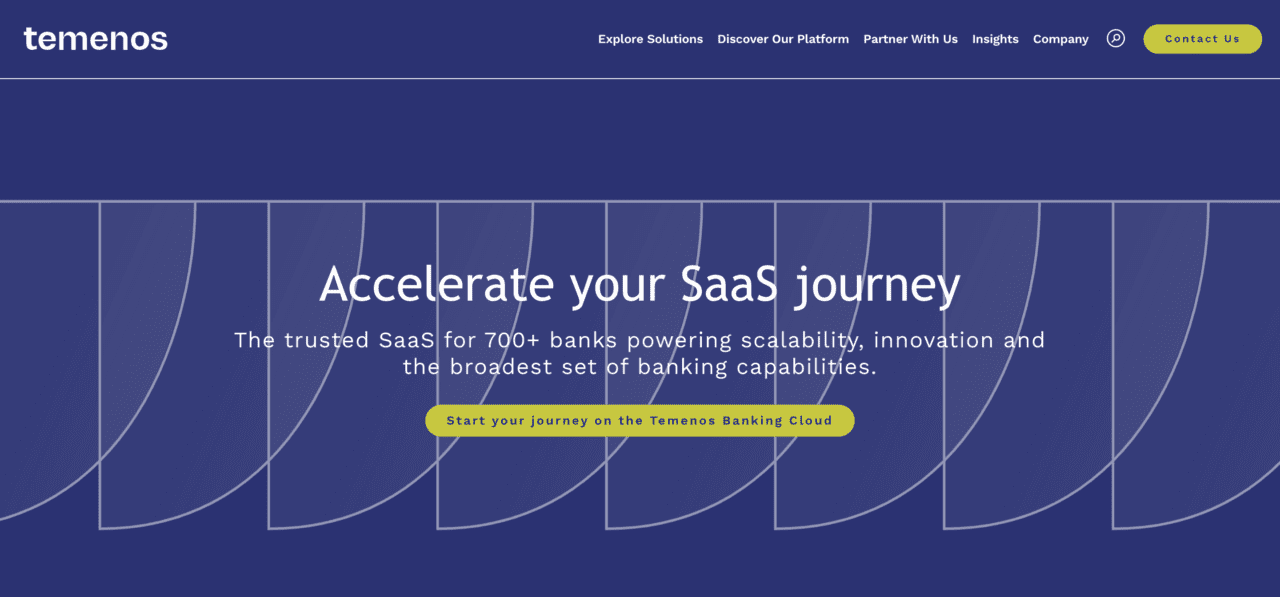
Digital banking solutions provider Finshape announced a strategic collaboration with Arab National Bank (anb). The partnership will enable anb to leverage Finshape’s personalization and data analytics platform to enhance its digital banking services. The bank will also be able to take advantage of Finshape’s latest offering, Money Stories. This new solution categorizes spending and provides forecasts to help individuals better track their finances. At the same time, Money Stories empowers banks to make personalized, relevant offers to their customers.
“This collaboration reflects our commitment to speed up innovation and customer-centricity in the Middle Eastern banking scene,” Finshape Chief Growth Officer József Nyíri said. “Together with anb, we aim to transform how customers manage their finances, providing them with tailored solutions that empower them to reach their financial aspirations.”

Finshape demoed Money Stories in its Best of Show-winning debut at FinovateEurope 2022. Inspired by Instagram Stories, Finshape’s Money Stories helps banks boost engagement and enhance the customer experience. The solution highlights key financial events in the user’s life via short, seven to ten second snapshots. The shots are swipeable and easy to view and digest, providing a unique and memorable way for users to track their finances.
“(The) integration of a social media story-like format within our banking app, mark(s) a significant milestone in Saudi Arabia’s financial landscape, setting a precedent for engaging and educational digital interactions,” Arab National Bank COO Aiedh Al-Zahrani said
After winning Best of Show in 2022, Finshape returned to the Finovate stage the following year for FinovateEurope 2023. With 100+ clients in 25 countries, and more than 20 million users, Finshape ended last year with collaborating with Banca Transilvania, helping the bank launch its BT Go app. Designed to support corporate banking, BT Go offers an intuitive overview of business finances, unified card management, and automated invoicing. Within a month after launch, the solution has garnered 1,400 active users.
Finshape was founded in 2021 via the combination of Czech Banking Software Company (BSC) and Hungarian fintech W.UP.
Interested in demoing at FinovateEurope in London next month? Applications are still being accepted from innovative companies with new solutions that are ready to show. Visit our FinovateEurope hub today to learn more.
Here is our look at fintech innovation around the world.
Middle East and Northern Africa
- Pontera, an Israel-based software platform for financial advisors, raised $60 million in new funding.
- Egyptian fintech and customer loyalty app Zeal secured $4 million in funding.
- The Central Bank of Oman granted Paymob a Payment Service Provider (PSP) license.
Central and Southern Asia
- Kumari Bank, a commercial bank based in Nepal, partnered with Compass Plus Technologies to enhance its payments processing.
- India’s Hitachi Payment Services launched its financial inclusion initiative Money Spot Plus.
- Raqami Islamic Digital Bank (RIDB) forged a partnership with Euronet Pakistan to boost digital payments in the region.
Latin America and the Caribbean
- Latin American embedded banking company Prometeo secured $13 million in new funding courtesy of investments from PayPal and Samsung.
- Argentina-based payments infrastructure company Pomelo raised $40 million in Series B funding.
- Contxto looked at the challenges Mexican fintechs are facing in meeting the standards of the country’s new fintech law, enacted in 2018.
Asia-Pacific
- Singapore’s ipaymy launched invoicing platform Fetch.
- Phillipines-based digital-only neobank, Tonik, announced an expansion of its Big Loan SME lending offering.
- Having recently secured regulatory approval, AEON Bank will become Malaysia’s first Islamic bank.
Sub-Saharan Africa
- South African neobank TymeBank achieved profitability for the first time in December.
- Financial Times reviewed the SEC’s complaint against Nigerian fintech Tingo and its CEO Dozy Mmobuosi.
- Could Ethiopia become the next African fintech giant? Onafriq Ethiopia’s Yohannes Tsehai makes the case.
Central and Eastern Europe
- Romanian fintech Finqware introduced its FinqPayments solution to enhance financial services for medium-to-large businesses in Europe.
- German challenger bank N26 launched stock and ETF trading, starting first in Austria.
- iDenfy, an identity verification company headquartered in Lithuania, announced a partnership with Latvian online gaming company SPINS.






.png)









